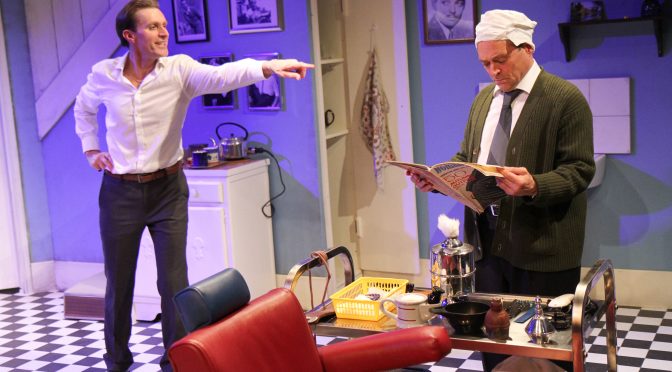As an early example of representing homosexuality on stage, Charles Dyer’s 1966 play is noteworthy. The piece had success in the West End and on Broadway, despite censorship. This revival directed by Tricia Thorns serves as a tribute to the playwright, who died this year, but only manages to confirm the play’s historical interest.
As a study of Harry and Charlie, two “small time backstreet hairdressers”, together for twenty years, the promise is an insight into lives not usually recounted. And a reminder of crueler times – the men have to hide their relationship and Charlie is in trouble with the law after an impromptu drag performance. The business is in danger too, since Harry has alopecia (although the best barber I ever had was bald). Unfortunately the men’s love-hate relationship has more hate than romance and is difficult to care about.
Even now it’s unusual to see older gay men on stage and the talk of age being a “smelly thing” is thought-provoking. The dialogue is often interesting, especially Harry’s “silver flow of oratory”. The mix of slang and obscure references is stimulating. The convoluted descriptions are articulate, yet I found it hard to decide how funny Staircase is supposed to be.
There’s plenty of detail in Dyer’s script but the delivery raises questions. Paul Rider, who takes the better written part of Harry, is more confident and entertaining to watch. John Sackville does well with his character’s vanity and a suggestion of serious delusions (are both characters on stage different personas of one man?) but is too fraught and uncomfortable throughout. Dyer’s play on names and the briefest of suicide scenes create confusion. Thorns’ unflinching direction maintains the bickering relentlessly. Despite all the pain and loneliness, and the potentially serious outcomes, the men’s arguments become tiresome quibbles. Staircase never ascends beyond being a dated curiosity.
Until 17 July 2021
Photo by Phil Gammon

